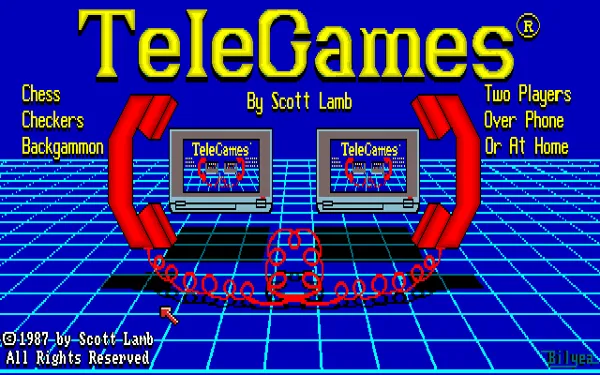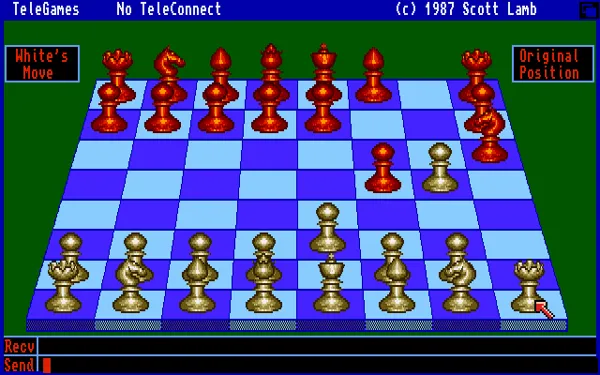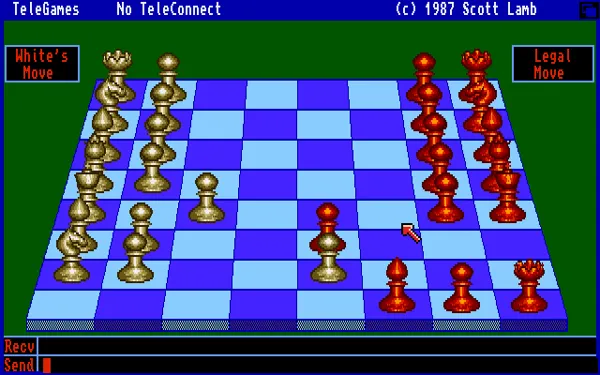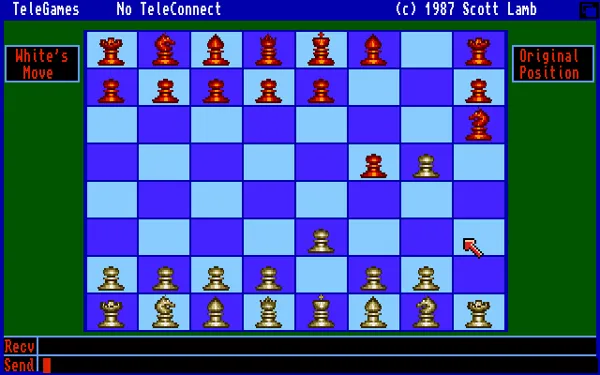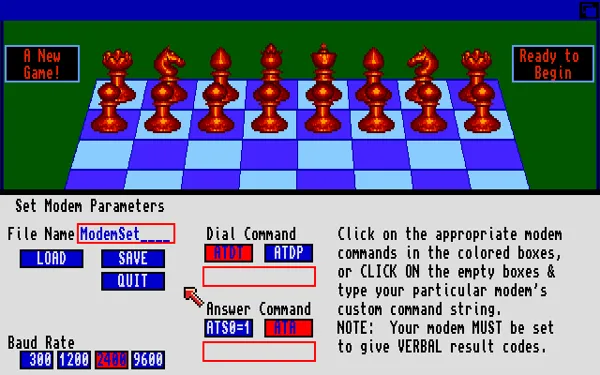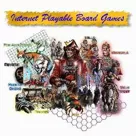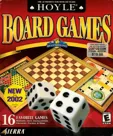TeleGames
Description official description
TeleGames is a collection of three classic board games to be played against a remote opponent via modem or null-modem. It can also be played taking turns at the same computer.
The games in question are chess, checkers and backgammon. The graphics are colourful, and can be seen both in 3-d from several perspectives as well as in a flat view from straight above. The package contains a phone book to keep track of remote opponents.
On the CDTV version only local multiplayer is possible. Another difference is that it features spoken directions on how to play the game. These are recorded in six different languages: English, German, Japanese, French, Spanish and Italian.
Groups +
Screenshots
Credits (Amiga version)
| ©1987 by | |
| Title screen |
Reviews
Critics
Average score: 60% (based on 1 ratings)
Players
Average score: 2.8 out of 5 (based on 4 ratings with 0 reviews)
Be the first to review this game!
Analytics
Identifiers +
Contribute
Are you familiar with this game? Help document and preserve this entry in video game history! If your contribution is approved, you will earn points and be credited as a contributor.
Contributors to this Entry
Game added by Игги Друге.
CDTV added by Kabushi.
Additional contributors: Kabushi.
Game added December 24, 2013. Last modified April 27, 2023.


